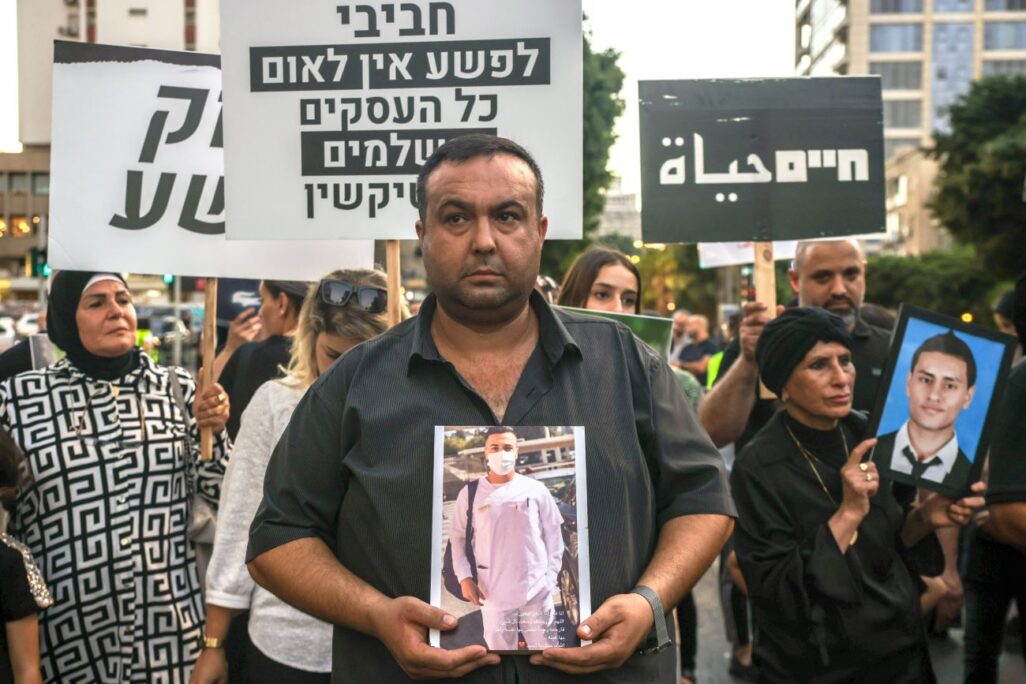
Thousands of protestors took part in the “March of the Dead” in Tel Aviv last week in protest against violence in the Arab community. Arab community members, volunteers, and youth organizations marched wearing white and carrying 140 coffins, matching the number of those who have been victims of deadly violence so far this year within the Arab sector.
Thousands of Arabs and Jews came to the protest, marching along a main thoroughfare of Tel Aviv. “The first step is to protest not just in our communities, but also in the heart of Tel Aviv. We are one society. Violence will seep into the Jewish society as well,” said Rada Zoabi, a social activist and journalist with the ‘Bokra’ news group and an organizer of the protest.
"Our young generation is fed up. They want to live in peace and security," said Zoabi. This generation is exhausted. Instead of thinking about academics and employment, they just want to come home without violence and mourning." With a diverse organizing committee hailing from different parts of the Arab community in Israel, there is a shared feeling of arriving at a breaking point. “It's a cry from within Arab society,” Zoabi explained, “The plague of violence has left us no space to think about anything else, not business, not education. We are all stuck there. Our goal is to declare a state of emergency."
Young people have taken a leadership role in this protest. "Usually, the protest is led by leadership figures, authorities, and religious leaders,” Zoabi explained. “This time, high school students and young people will be at the forefront." Youth movements and volunteers led the march dressed in white, a symbol of unity and optimism, and carrying 140 coffins to represent those who were victims of deadly violence in the Arab community so far this year.
"Just last month, someone was killed every day. This doesn't happen in any civilized country," declared Saverin Mazarweh, an organizer of the protest. "We're coming with coffins, but dressed in white, to give hope. Let's unite and rally around action, and create hope. We all experience what's happening. It's very tough. I want all of us to wake up, to do everything possible to make our society better, to enable real life, not death."
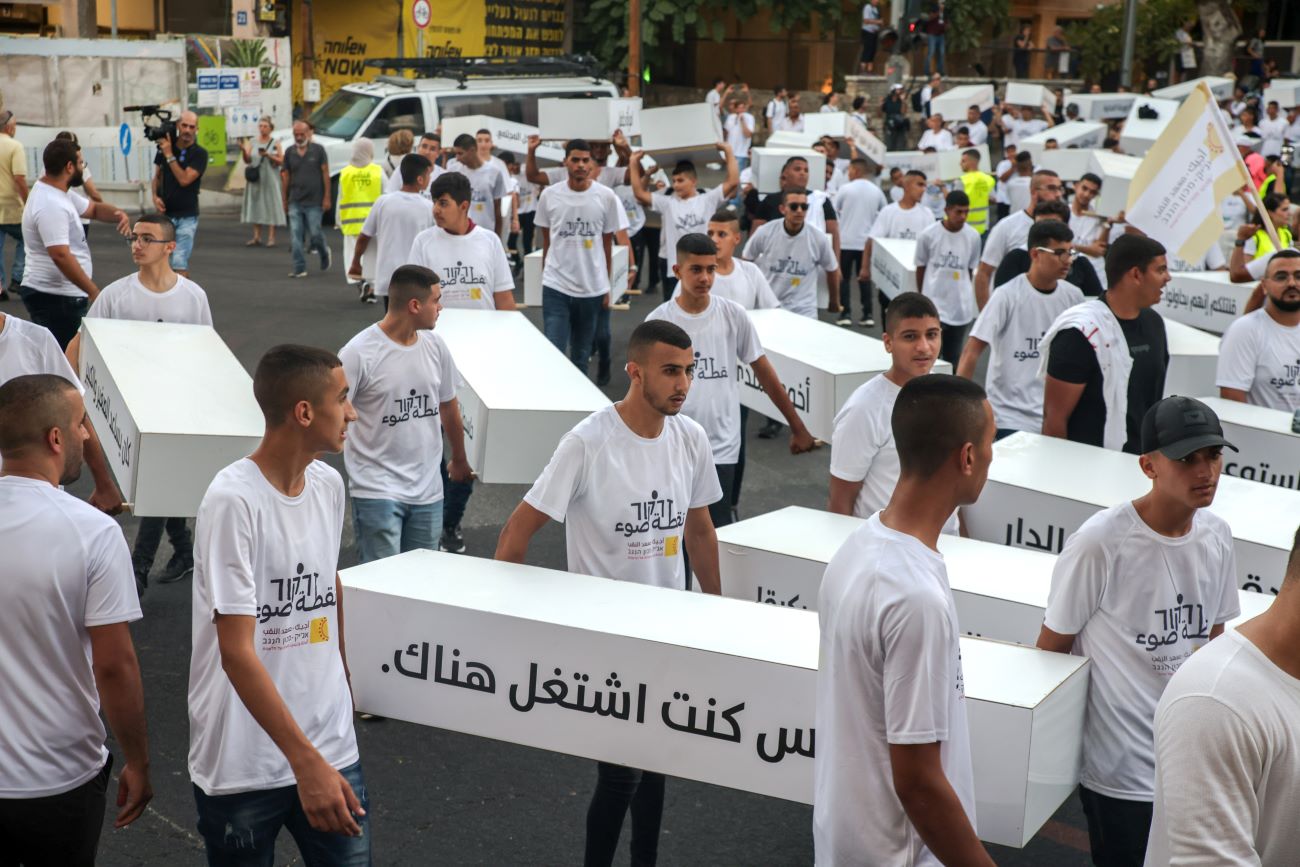
The organizers of the march wanted to bring more awareness to the issue of violence in the Arab community and to make it a priority for government action. “Our neighbors and friends hear about violence and crime, but they see less of what happens in the intimate circle of mourning. We’ve come here to make our voices heard and spread the message that we share one society and one fate,” said Zoabi. “Violence will spread to Jewish society. We share the same space. If someone doesn't know what's happening in my area, there's a disconnect. We ask that the issue of violence be a top priority for the government."
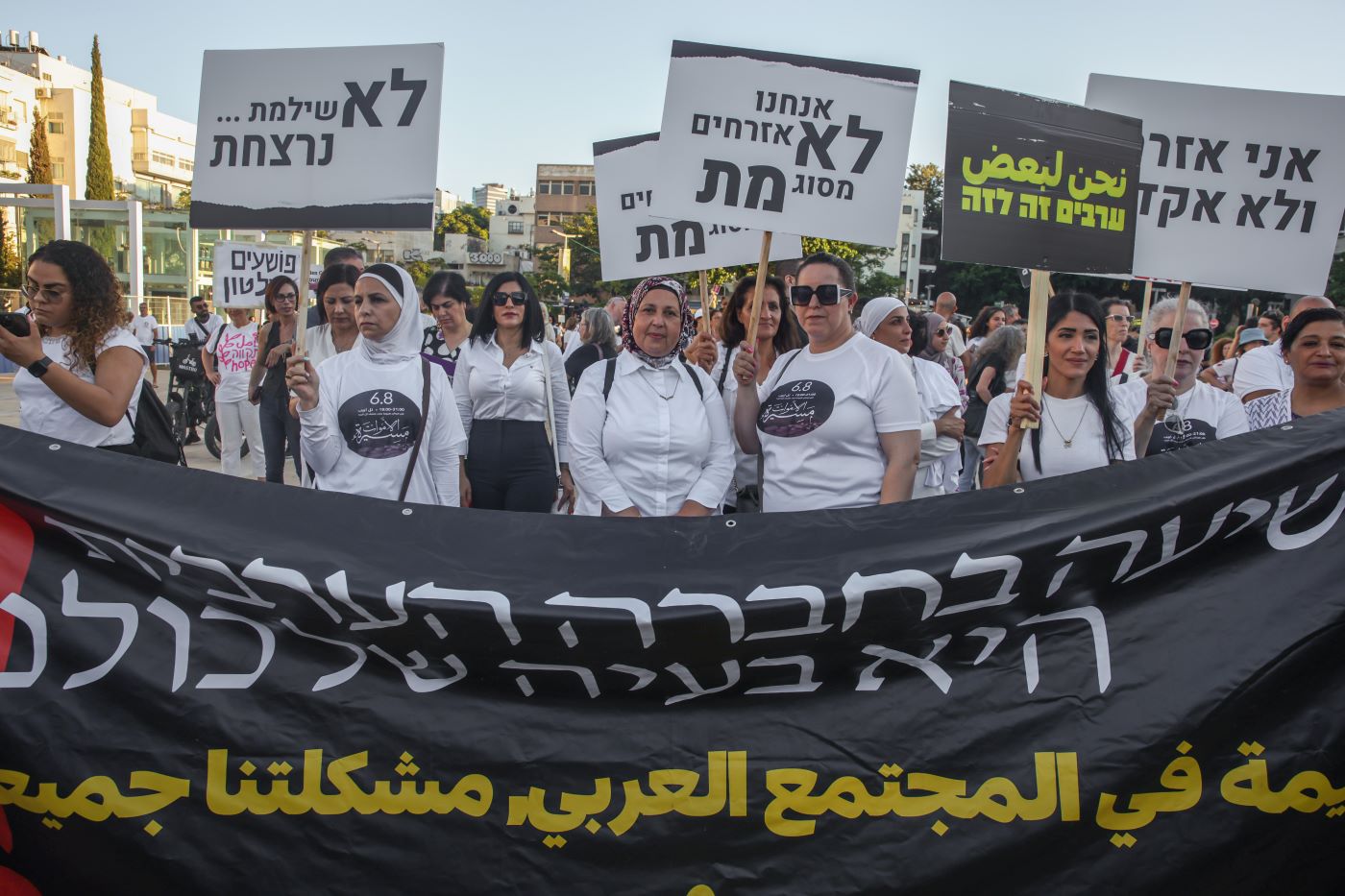
Family members of those who have been killed marched with photographs of the deceased. “This is our collective funeral procession," said Mazarweh. "We're tired of guessing who's next in line, tired of counting the dead. The government isn't doing its job; we're coming to Tel Aviv with the coffins of the dead to show the cost of its silence."
So far, most of the protests have been in Arab communities and at the government compound in Jerusalem, but this protest aimed to bring the call to end violence in the Arab community to all of Israeli society. "I want Jews to be partners with me and not stand aside. This concerns all of us. I want you to demand action from the government. I don't want to be alone in this struggle," Mazarweh explained.
"It's not just the government, it's the entire country," Zoabi adds. "What's important is to make our cry heard, the cry of the younger generation. Today, the issue of violence is being pushed aside. We hear about more murders and more victims, and there's no one taking care of it. The goal is to raise a cry: it must be a shared fate if we want both sides to live in security and peace.
"This isn't a struggle for democracy and equality, but for security and peaceful life," Zoabi emphasized. "It's a message to the entire world. The younger generation wants to live in security; they're tired, exhausted. They don't want to count victims; they want to count academics. They want to come to Tel Aviv for employment, not for funerals."
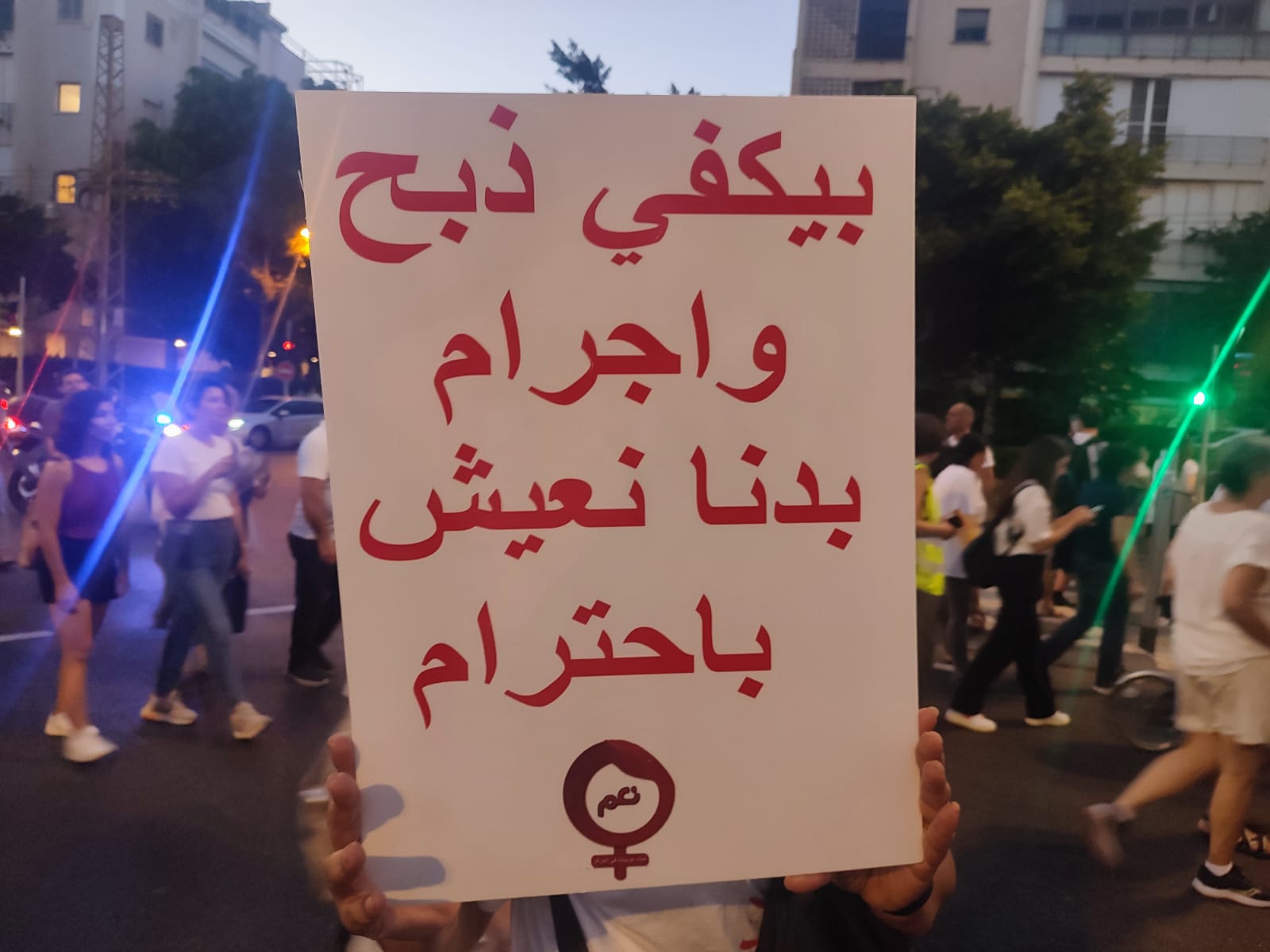
Mazarweh believes that the majority of the responsibility lies with the government. "I can't blame our society. I blame the government for abandoning us,” she said. Mazarweh explained that in contrast to the Israeli government’s actions to deal with crime in cities with a population that is mostly Jewish, they have taken no action to curb violence within the Arab community in Israel. She also criticized Arab Israeli leadership. "Deep internal work needs to be done within Arab society, to see what we want and who can lead us. We have leaders but no real leadership,” Mazarweh said.
"We are a physically and mentally suffocated society. Right now, there's nothing in the future for my children" continued Mazarweh. A teacher by profession, she lives in Tayibe, an Arab city in central Israel, and teaches in Petah Tikva. "Jews have a clear path, but we don't have that. I have three daughters and a son. My eldest daughter, 23, is still searching for herself. She wants to study a profession that brings in money. My son, 18, tells me he needs to figure out how to make money. They don't know what they want. They have nowhere to hang out in Tayibe or Tira." These Arab cities, while located in central Israel, offer little in terms of employment prospects and educational opportunities for their residents, while having high rates of violence and crime.
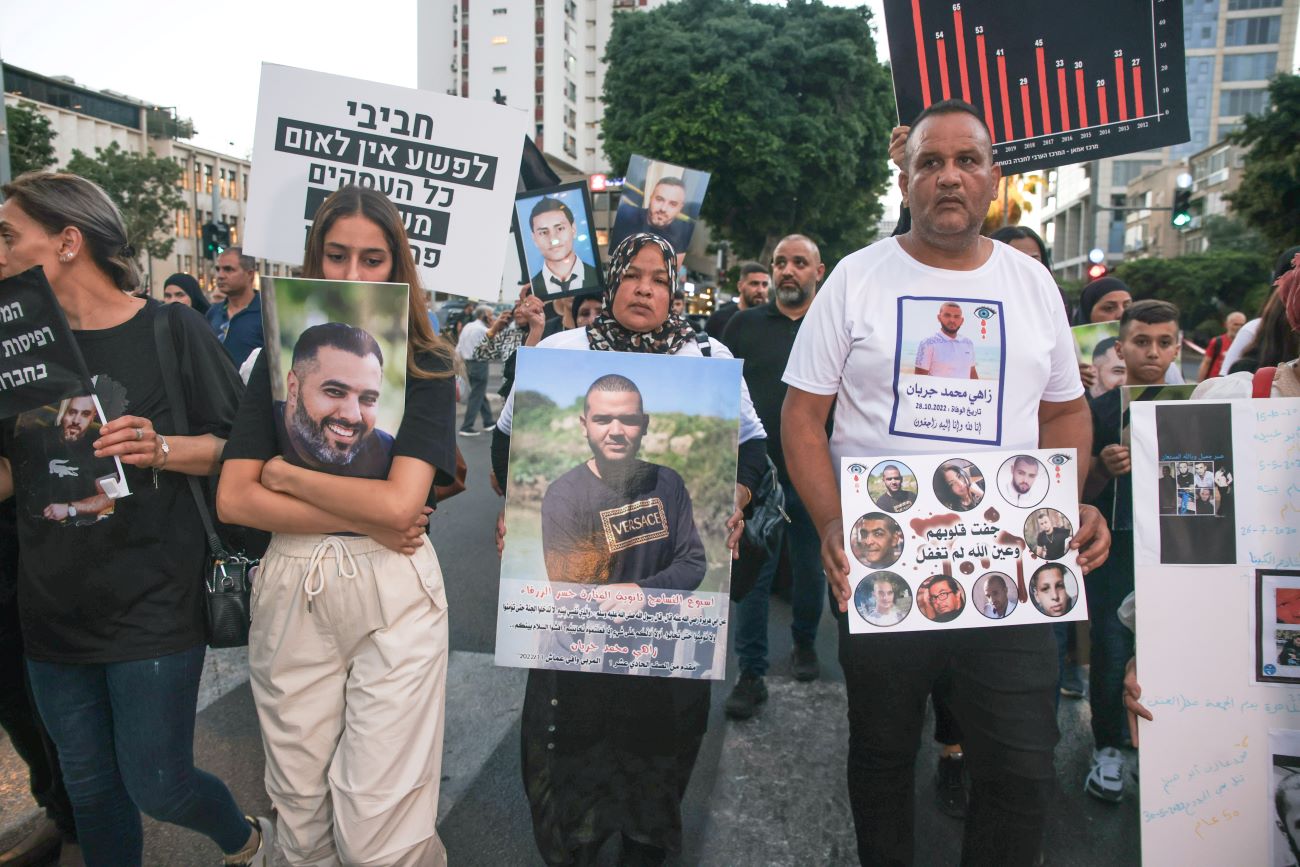
"Everyone is responsible and needs to hear the message in Israel and around the world," Zoabi insisted. "The issue of violence didn't suddenly appear – it's a consequence of years of discrimination and neglect. There are disparities in education and employment, and there's at-risk youth. It's an accumulation, and it needs to be addressed just like in all other areas. It's important to focus on the issue. We can't stay confined to our communities. There are decision-makers and there are government ministries. We need to not only count the victims, but to create equality and democracy. This is a turning point where a young generation, a network of social activists, is entering the scene, and they are sharing the leadership."
This article was translated from Hebrew by Marina Levy.






